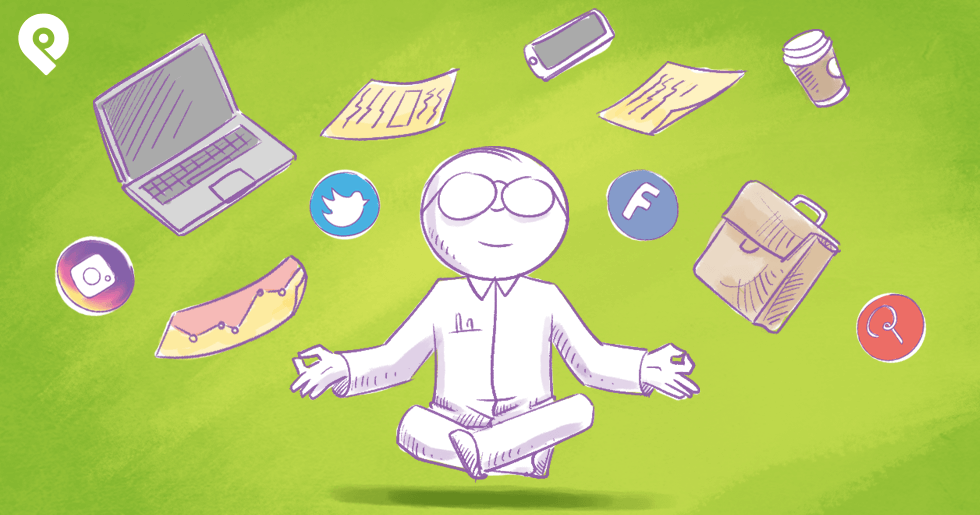Social media is a powerful tool for communication, connection, and creativity. However, excessive use can leave you feeling stressed and overwhelmed. Learning how to use social media effectively without feeling overwhelmed is essential to maintaining a healthy balance while reaping its benefits. For tips on managing your online presence, visit https://theiganony.com/. This guide provides actionable strategies to help you stay productive, engaged, and stress-free.
1. The Importance of Balance on Social Media
Social media is an integral part of modern life, but without balance, it can negatively affect your mental well-being. Striking the right balance ensures that social media enhances your life instead of controlling it.
Why Balance Matters
Using social media excessively can lead to anxiety, lack of focus, and decreased productivity. A balanced approach helps you enjoy its benefits while maintaining emotional and mental health.
Setting Realistic Goals
Define why you use social media. Whether it’s for personal connection, professional networking, or entertainment, having clear goals keeps you focused and reduces aimless scrolling.
2. Setting Boundaries for Healthy Social Media Usage
Establishing boundaries is key to avoiding burnout. Boundaries help you manage your time and prevent social media from taking over your life.
Limit Screen Time
Set daily time limits for each platform. Most social media apps have built-in tools to track and control your usage.
Create Tech-Free Zones
Designate areas in your home, like the bedroom or dining area, where social media use is off-limits. This encourages mindfulness and personal interaction.
Avoid Social Media Before Bed
Using social media late at night disrupts sleep patterns. Replace this habit with reading or relaxing activities.
3. Curating Your Social Media Feed
Your social media feed should inspire and uplift you. Curating your content reduces negative emotions and helps you focus on what truly matters.
Follow Positive Accounts
Unfollow accounts that promote negativity, comparison, or stress. Instead, follow people and pages that align with your values and interests.
Organize Your Feed
Use features like lists or categories to organize your feed. This makes it easier to find content you care about while avoiding unnecessary distractions.
Take Breaks from News
Constant exposure to news updates can be overwhelming. Limit news consumption to specific times of the day to reduce stress.
4. Using Social Media for Productivity
Social media can be a powerful productivity tool when used wisely. Optimize your time on these platforms to enhance learning and achieve goals.
Leverage Educational Content
Follow accounts that share educational tips, tutorials, or industry insights. This transforms social media into a platform for growth and skill development.
Schedule Posts in Advance
For professionals and creators, scheduling posts saves time and reduces the need to log in frequently.
Set Specific Objectives
Before opening an app, define your purpose. Whether it’s networking, learning, or promoting your work, a clear goal helps you avoid mindless scrolling.
5. Practicing Mindfulness While Using Social Media
Mindfulness ensures that your social media experience remains positive and intentional. Being aware of your habits helps you avoid feeling overwhelmed.
READ MORE : https://theiganony.com/
Avoid Comparing Yourself to Others
Remember that social media often portrays highlights, not reality. Focus on your own journey and avoid comparisons that lead to negativity.
Be Present in Real-Life Moments
Don’t let social media distract you from enjoying real-world experiences. Put your phone away during social gatherings and focus on building genuine connections.
Reflect on Your Usage
Regularly evaluate how social media affects your mood. If it feels draining, consider taking a break or adjusting your habits.
6. Embracing Digital Detox Periods
Taking a break from social media can refresh your mind and improve your overall well-being. Digital detoxes help you reset and regain focus.
Plan Scheduled Breaks
Set aside specific days or weekends for a complete social media detox. Use this time to reconnect with hobbies, nature, or loved ones.
Notify Your Connections
If you’re stepping away for a significant period, let your friends or followers know. This prevents unnecessary worries and ensures smoother communication.
Reflect on the Benefits
After a detox, reflect on how it improved your mental clarity and productivity. This encourages you to incorporate regular breaks into your routine.
7. Leveraging Social Media Responsibly
Using social media responsibly ensures that it remains a positive part of your life. Responsible usage benefits both your personal and professional life.
Avoid Oversharing
Protect your privacy by being mindful of what you share online. Avoid posting sensitive personal information.
Use Social Media for Good
Engage in meaningful conversations, support causes, and contribute positively to communities. This makes your time online more rewarding.
Be Respectful
Practice kindness and respect in your interactions. Avoid arguments or negative engagements that can drain your energy.
Conclusion
Learning how to use social media effectively without feeling overwhelmed is about setting boundaries, curating your feed, and using it mindfully. Just like exploring games that pay real money instantly requires strategy and focus, creating a balanced approach, embracing productivity, and prioritizing digital detoxes helps you enjoy the benefits of social media without letting it control your life. Use these tips to make your online experience positive and enriching while staying in control of your time and mental well-being.

